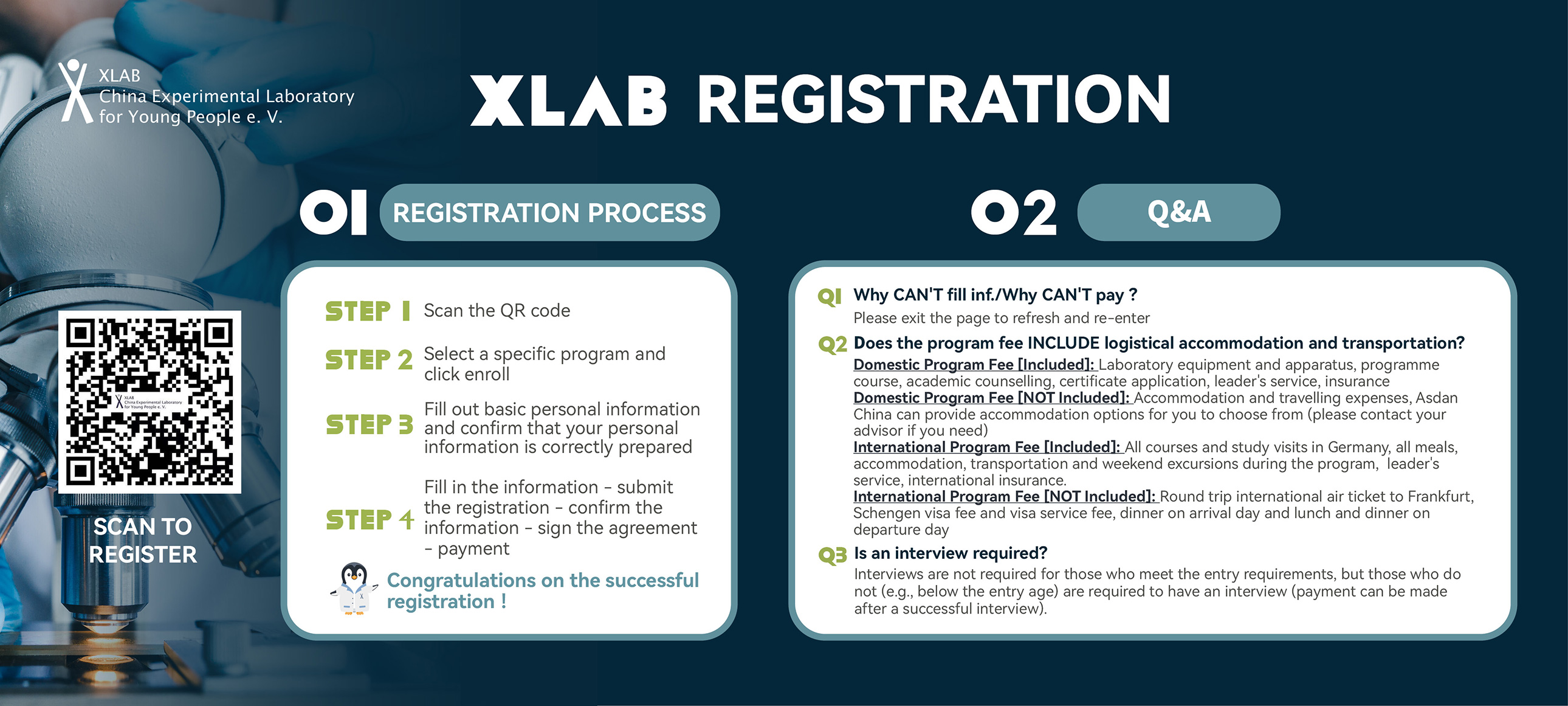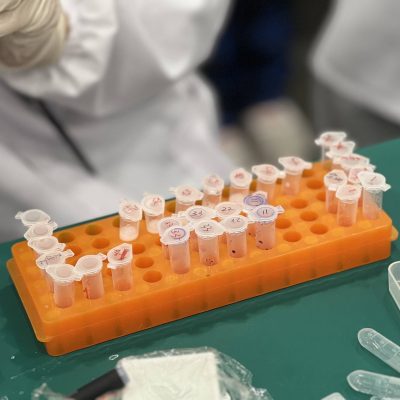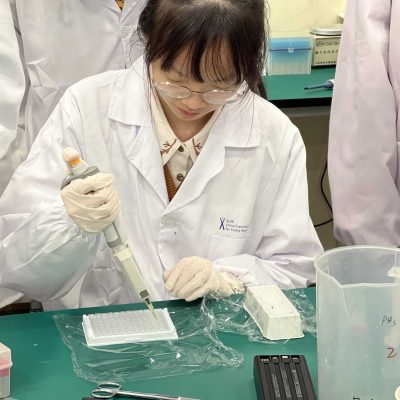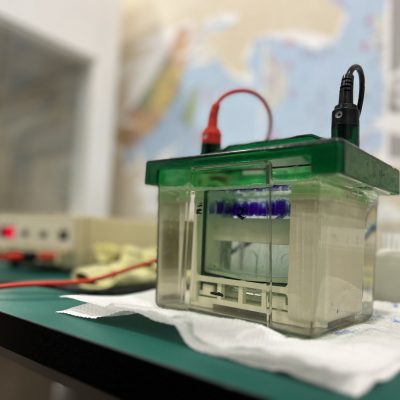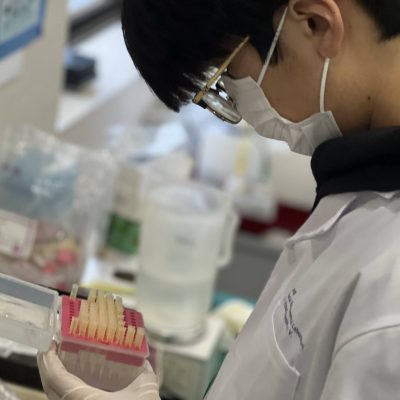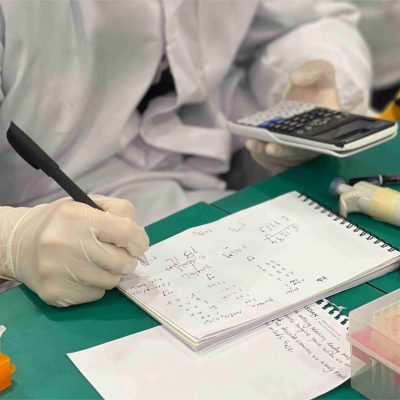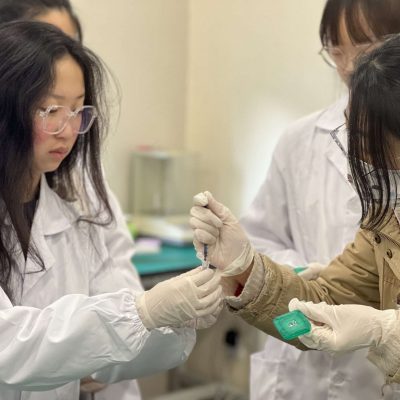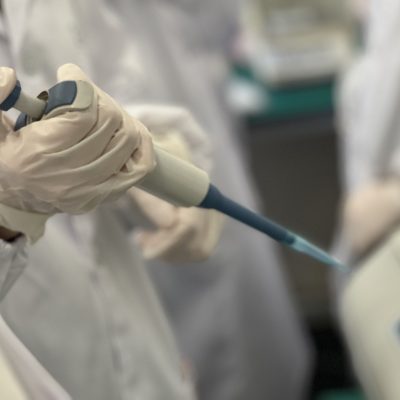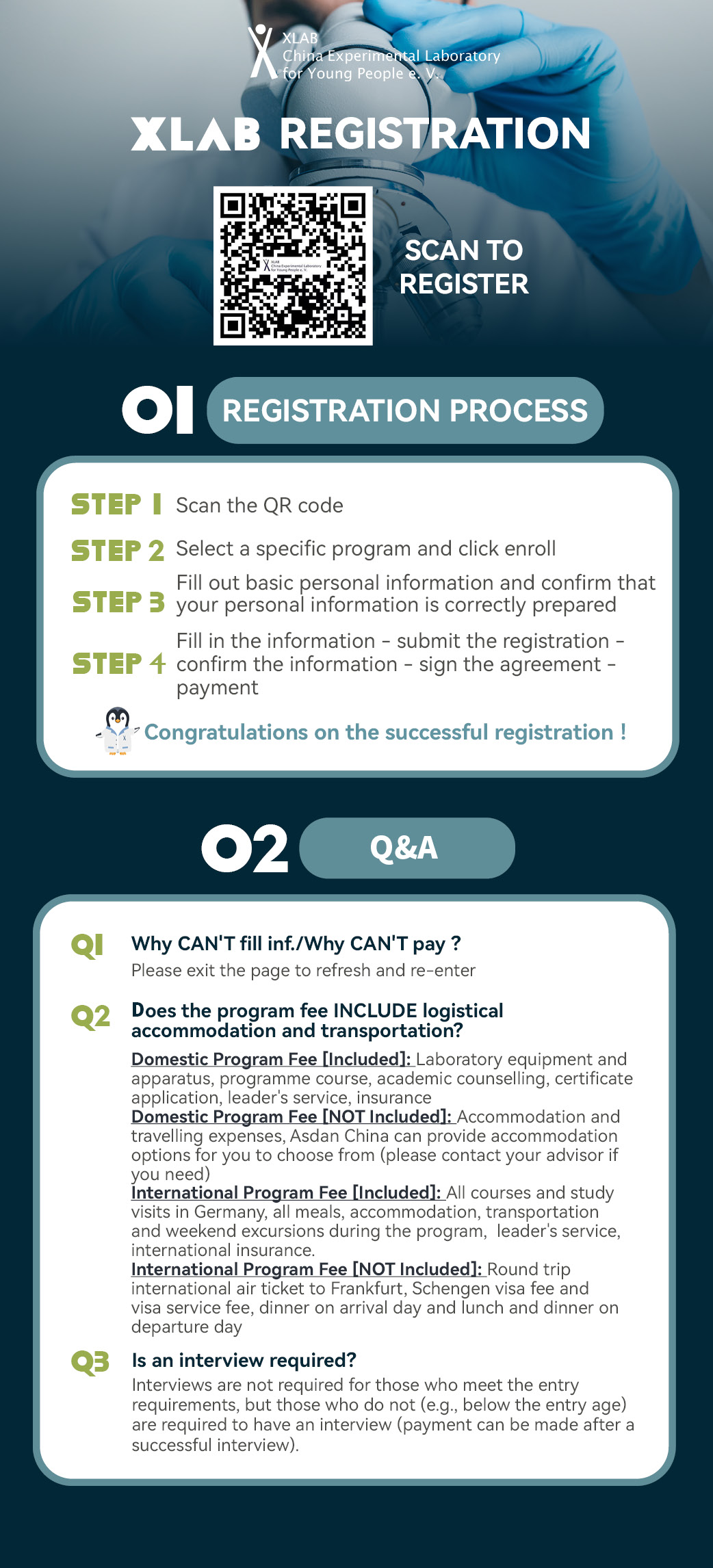Optical Principles and Applications in LiDAR
 Chengdu
Chengdu
Date:【Winter】 Feb. 24th - Feb. 28th
Subjects: Optics, Physics, Computer Science

As an emerging perception hardware, the principle of LiDAR involves emitting laser beams to measure the distance to surrounding objects. It utilizes a scanning mirror to control the beam for scanning targets, detecting the returning light signals from different positions of the target to obtain depth information about the surface, thereby achieving the goal of three-dimensional imaging.
This program, in collaboration with experts from a national-level Optical Engineering Research Center, aims to explore the basic principles, design, and implementation of LiDAR systems.
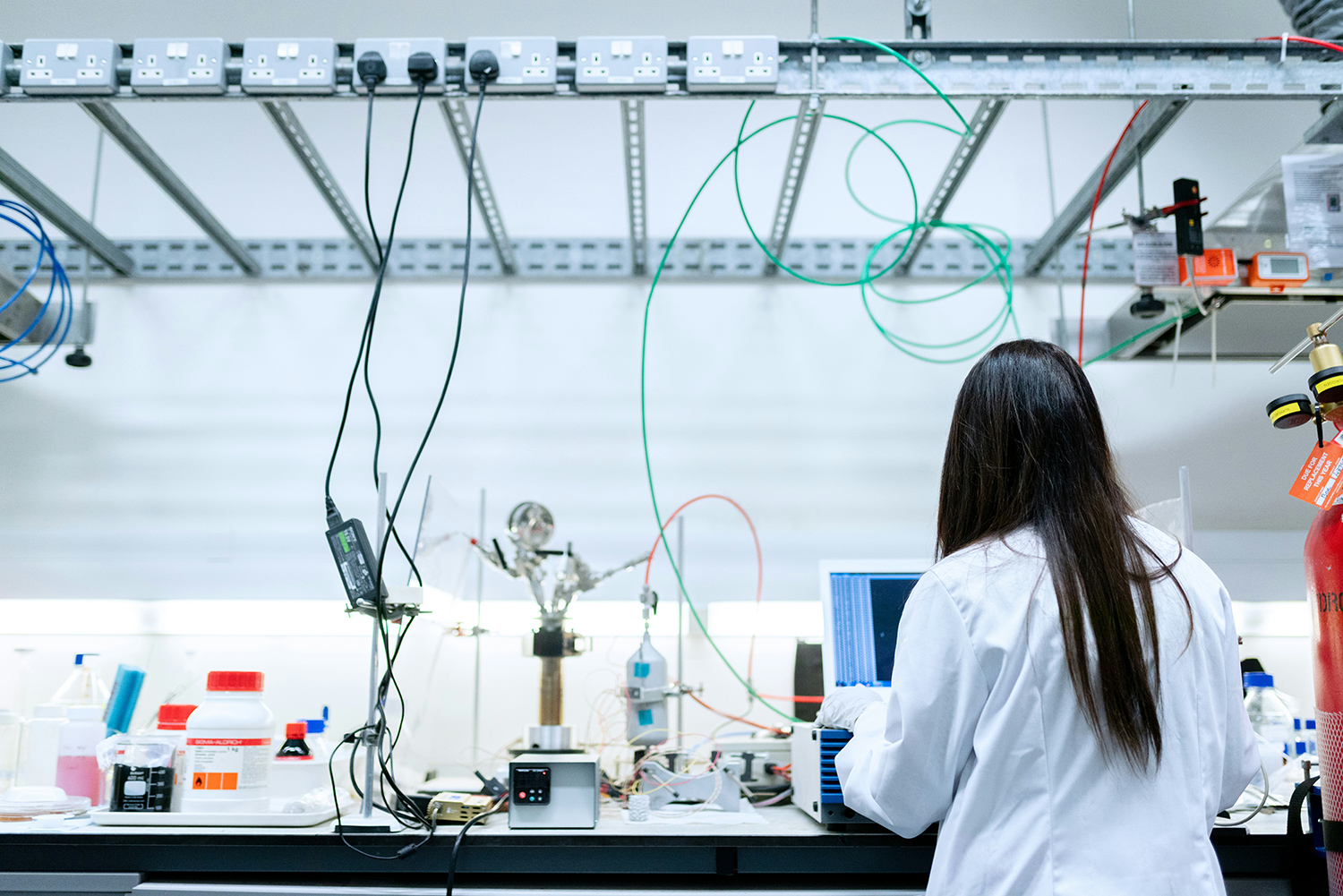
Teaching Faculty
Experts in laser 3D imaging from the National Optical Engineering Research Center are specially invited.

Cutting-edge Topics
Systematically learn the basic principles of LIDAR and the design realization of automatic driving.

Real Lab Practice
Laser and photoelectric detection experiments, and the testing of intelligent obstacle-avoiding robots.
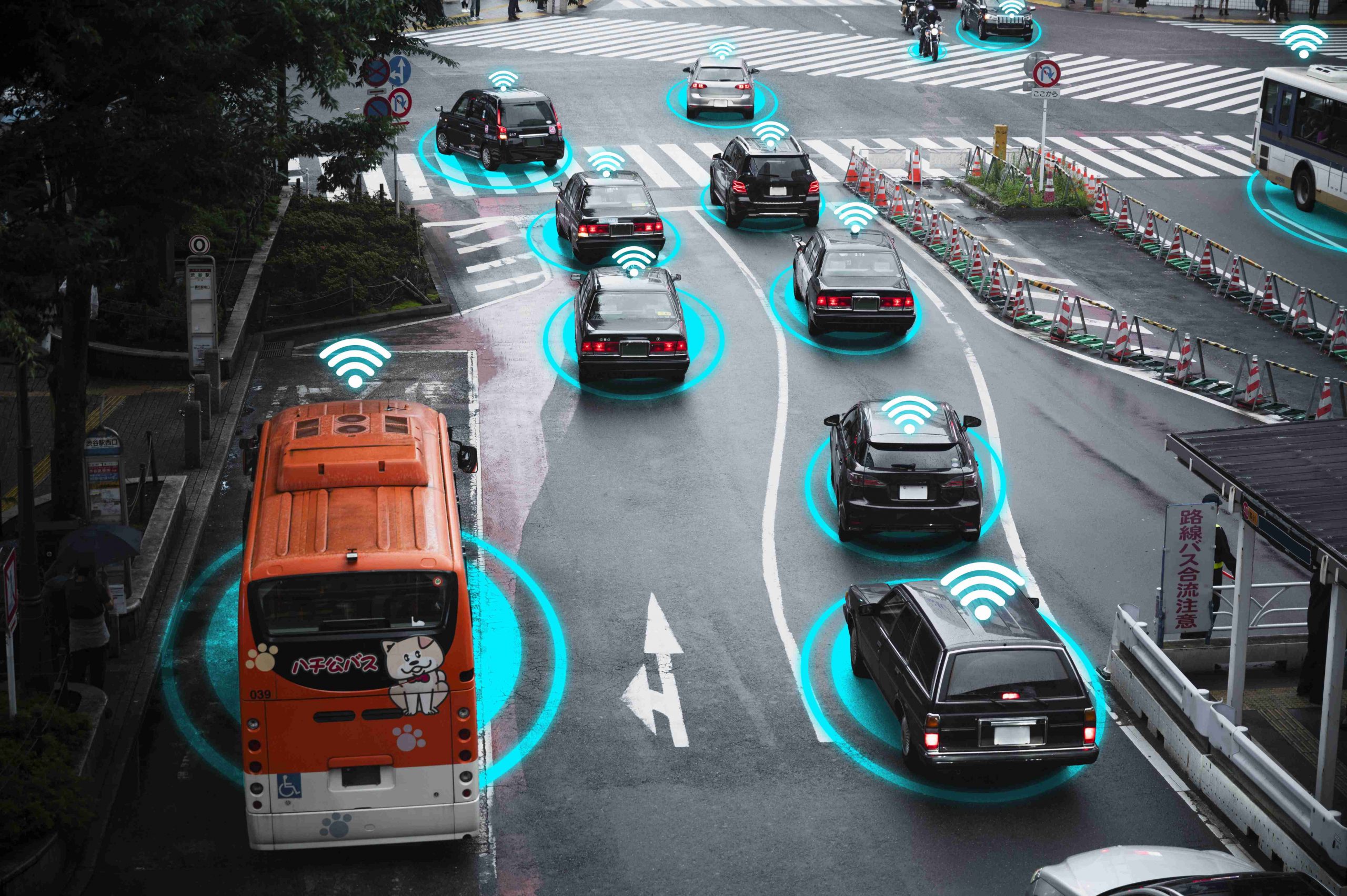
Outcome Application
Research outcomes for the technical support of LIDAR and the development of future intelligent technologies.
Main Experiments
Laser Control Experiment
Telescope Making Experiment
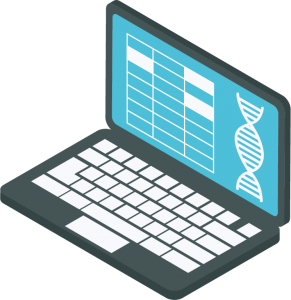
Photoelectric Detection Experiment
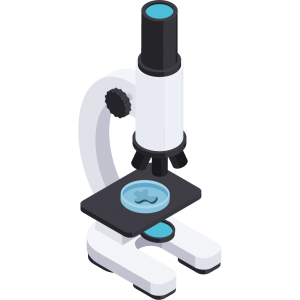
Laser Scanning Imaging Experiement
Laser Control Experiment
Telescope Making Experiment
Photoelectric Detection Experiment
Laser Scanning Imaging Experiement
Certificates
).png)
CERTIFICATE OF ASDAN SCIENCE
ASDAN SCIENCE SHORT COURSES CREDIT ACCREDITED BY UCAS
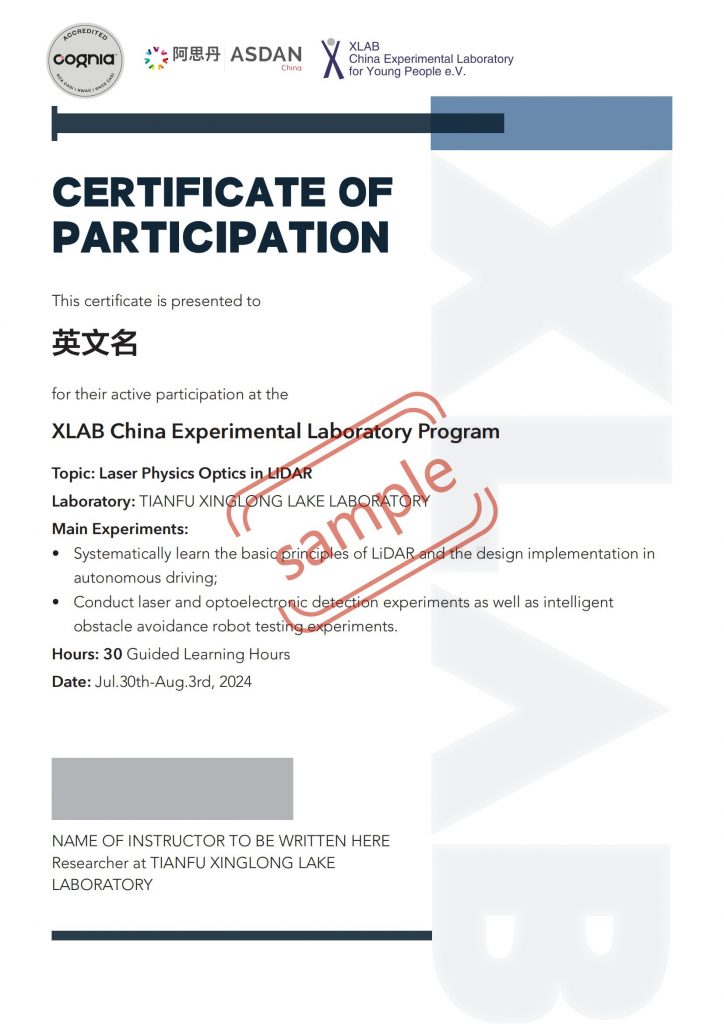
CERTIFICATE OF COMPLETION ISSUED BY XLAB CHINA

项目感言
-
 我收获了进入实验室实际操作各种以前只有在课本上才能看到的仪器的经验。其中使用移液枪稀释血清的环节让我收获最大,让我深刻认识到一个道理:在每次推动移液枪之前,绝对要注意力集中,大脑高速运转。本次实验中由于一次失误,我们组差点要从头开始,但是同学们并没有气馁,找到了挽救的办法。对专业选择,我确定了想要选择的方向,同时坚定了我在这个领域深耕下去的信念。希望在未来的日子里面,我也可以带领我的祖国和全人类走向更远的未来。
我收获了进入实验室实际操作各种以前只有在课本上才能看到的仪器的经验。其中使用移液枪稀释血清的环节让我收获最大,让我深刻认识到一个道理:在每次推动移液枪之前,绝对要注意力集中,大脑高速运转。本次实验中由于一次失误,我们组差点要从头开始,但是同学们并没有气馁,找到了挽救的办法。对专业选择,我确定了想要选择的方向,同时坚定了我在这个领域深耕下去的信念。希望在未来的日子里面,我也可以带领我的祖国和全人类走向更远的未来。—— 郑州一八联合国际学校 李同学

-
 给我带来的收获就是实验,这也是我认为最有价值,效率远高于其他部分的时间段。在这里我能够拓宽视野,了解到专业实验室的运转流程,使用专业器械来进行专业的实验,而且本期也是我较为感兴趣的一个课题 所以实验室是我最喜欢的环节。
给我带来的收获就是实验,这也是我认为最有价值,效率远高于其他部分的时间段。在这里我能够拓宽视野,了解到专业实验室的运转流程,使用专业器械来进行专业的实验,而且本期也是我较为感兴趣的一个课题 所以实验室是我最喜欢的环节。—— 上海中学国际部(高中部) 丁同学

-
 开拓了化学新视野,接触到了更多新事物,理论与实践相结合,实验不仅是对课本知识的巩固,而且可以提高我们的实际操作能力和理论联系实际的能力。实验过程中的亲身经历使我们对知识点有了更深的理解和应用。氧化肺炎I型荚膜多糖实验让我收获最大,收获了这个实验的操作经验和技巧,也收获了友谊。明白了团队合作的重要性,实验操作中,团队合作可以帮助我们更好地完成实验任务,分享信息和资源,同时也能互相学习,提高整体的工作效率和质量。
开拓了化学新视野,接触到了更多新事物,理论与实践相结合,实验不仅是对课本知识的巩固,而且可以提高我们的实际操作能力和理论联系实际的能力。实验过程中的亲身经历使我们对知识点有了更深的理解和应用。氧化肺炎I型荚膜多糖实验让我收获最大,收获了这个实验的操作经验和技巧,也收获了友谊。明白了团队合作的重要性,实验操作中,团队合作可以帮助我们更好地完成实验任务,分享信息和资源,同时也能互相学习,提高整体的工作效率和质量。——成都外国语学校 刘同学

精彩瞬间
Why Us
History
XLAB has a 20+ year history. It was initiated by Professor Neher of the University of Göttingen in Germany and strongly supported by the German government and the University of Göttingen. XLAB, centered around high-end scientific experiments, is widely favored by over 10,000 students yearly. XLAB has established practice centers worldwide, aiming to expand this unique concept and teaching method to reach more students.
XLAB aims to enable more people to learn and experience the joy of science, encouraging them to explore the mysteries of science and consider how to use science to solve human problems. Therefore, XALB's subjects are generally more complex in physics, biology, or medicine. Instead, they focus more on interdisciplinary, cutting-edge topics such as genetic engineering, medical research, nanobiology, medical chemistry, high-energy physics, and more.
Subject
Experiment
Experiments are the core of the XLAB. Each participant can enter advanced laboratories to conduct safe experiments, analyze data, and write experiment reports. Over six hours of scientific research daily enhances students' scientific knowledge and logical thinking and cultivates concentration and endurance. Students will be able to experience the work content and status firsthand and consider whether to choose a research direction in future education.
The courses in XLAB are unique. They consist of four key modules: Subject Introduction and Program Thinking, Scientific Research Teaching, Laboratory Operations, Experimental Data Analysis, and Research Report Writing. All courses are taught in small groups of 10 to 25 students.
Course
Faculty
Experts are invited to design experiments and teach students since the topics and content of XLAB exceed the curriculum of high schools and are specialized in specific research areas. Relevant scientific research institutions support XLAB China and provide an in-depth academic experience for Chinese students based on its unique teaching methods and experimental requirements.
Two authoritative certificates are available: the XLAB Program Certificate of Participation, which details the experimental content and is signed by instructors. Students will complete an academic report containing experimental results and data analysis to apply for the ASDAN "Science Award" Certificate for 30 credit hours of study officially accredited by UCAS.
Certificate
Research
XALB provides invaluable research scenarios for students who plan or are currently engaged in natural science research-oriented learning, such as EPQ or scientific papers, to implement their research plans and participate in hands-on scientific research. Experimental reports can be considered as part of their research achievements.

